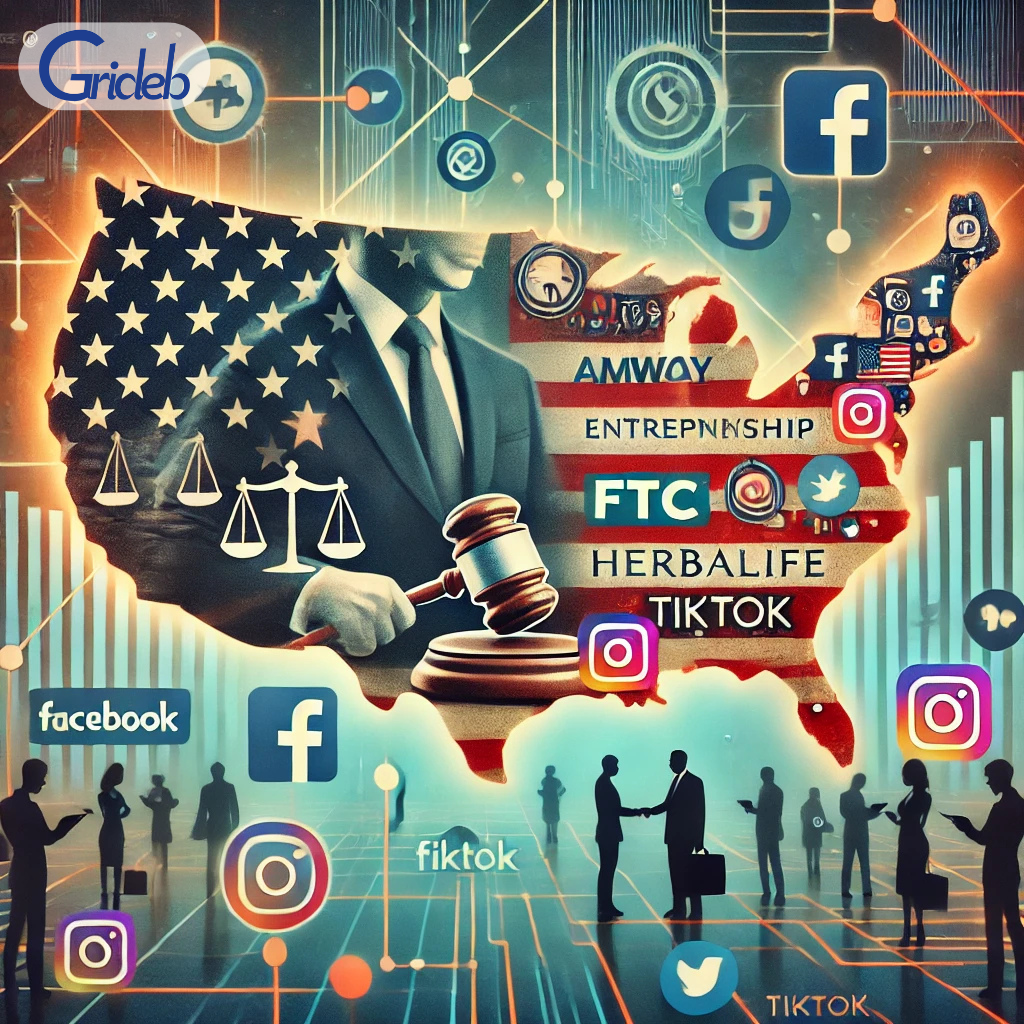Unveiling the MLM Boom in America

Unveiling the MLM Boom in America
The United States has long been a central player in the Multi-Level Marketing (MLM) industry, home to some of the world’s largest and most influential MLM companies. Brands like Amway, Herbalife, and Mary Kay have become household names, reflecting the scale and reach of the industry within the country. According to the Direct Selling Association (DSA), over 6.8 million people in the U.S. were actively involved in direct selling as of 2022. With a global revenue contribution exceeding $40 billion annually, the U.S. serves as a critical hub for MLM businesses, setting trends that ripple across the world.
Why the U.S. is the Ideal Ground for MLM Growth
Entrepreneurial Spirit
The U.S. is renowned for its entrepreneurial culture, making it an ideal ground for MLM growth. Many Americans value the idea of building their own businesses and achieving financial independence—values that align with MLM's core philosophy. The rise of the gig economy has further amplified this trend, with people increasingly seeking flexible income opportunities, making MLM a popular option for those looking to balance other commitments.
Regulatory Environment
The U.S. regulatory environment, guided by the Federal Trade Commission (FTC), plays a crucial role in shaping the MLM industry. While the FTC has cracked down on some companies resembling pyramid schemes, it also provides guidelines that allow legitimate MLM businesses to operate. This regulatory framework helps build trust, allowing compliant companies to thrive while protecting consumers from fraudulent schemes.
Consumer Market
The diverse consumer market in the U.S. is another key factor in the success of MLM companies. With a wide array of demographic segments, MLM businesses can tailor their products to different groups, ranging from fitness enthusiasts to busy parents. This diversity enables these companies to build extensive distributor networks and reach more customers.
Major MLM Companies Originating from the U.S.
Company Spotlights
Some of the most successful MLM companies in the world have their roots in the United States. Amway, founded in 1959, is a global leader in health, beauty, and home care products. Herbalife, founded in 1980, is known for its nutritional supplements and weight management products, while Mary Kay, established in 1963, is a strong player in the cosmetics sector. These companies have expanded internationally, influencing the global MLM landscape.
Global Influence
American MLM companies often set trends in the industry, from product innovation to new marketing strategies. They have pioneered unique compensation models that inspire other MLM companies globally, showing how to combine quality products with robust distribution networks.
Role of Technology and Social Media
Digital Transformation
Technology and social media have transformed how MLM businesses operate in the U.S. Platforms like Facebook, Instagram, and TikTok allow distributors to promote products, recruit members, and connect with customers. This shift has made it possible for MLMs to reach a broader audience, expanding their reach beyond local communities.
Case Studies
Monat Global, a U.S.-based MLM specializing in hair care products, has used social media to create a viral presence. Distributors share product testimonials, building a community that attracts new recruits. This approach has helped Monat scale rapidly, offering a model for other MLMs on how to leverage digital tools for growth.
Challenges and Criticisms
Pyramid Scheme Concerns
Despite its success, the MLM industry in the U.S. has faced significant scrutiny. The line between legitimate MLMs and pyramid schemes can be thin. Herbalife’s 2016 $200 million settlement with the FTC over allegations of deceptive practices highlighted the importance of focusing on genuine product sales instead of recruitment-based earnings.
Reputation Management
To address these challenges, many MLM companies have improved transparency about their business practices and compensation structures. By emphasizing product quality and consumer satisfaction, they work to maintain credibility and comply with regulations.
Lessons for the Global MLM Industry
Learning from the U.S. Market
The US experience offers insights for MLM companies worldwide. American MLMs have shown the importance of adapting to digital marketing and balancing recruitment with product sales. Understanding the regulatory landscape is crucial for building a sustainable business model that maintains consumer trust.
Conclusion: The Way Forward
Future Trends
The future of the MLM industry in the U.S. looks promising, with more digitalization and evolving regulations shaping the landscape. As artificial intelligence and data analytics become more accessible, MLM companies will further personalize their marketing strategies and consumer experiences.